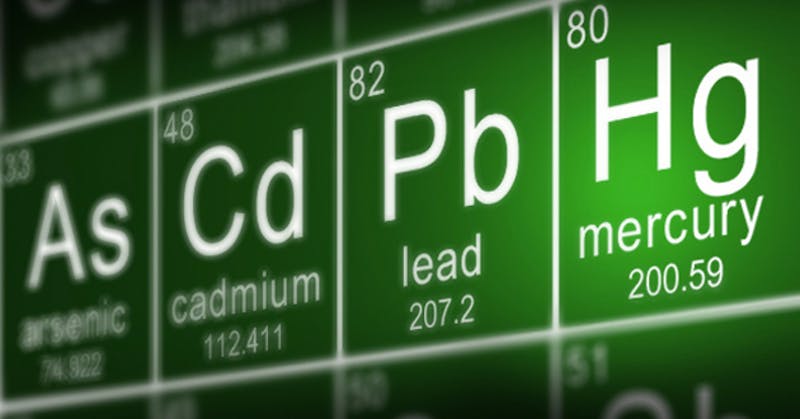USP Lead and Cadmium Content in Infant Nutrition
The USP test is a critical quality control measure designed to ensure the safety of infant nutrition products by detecting potentially harmful levels of lead and cadmium. This regulatory standard underscores the importance of maintaining the highest standards of hygiene, purity, and overall product integrity for infants. The presence of heavy metals in infant formulas or dietary supplements can have severe health implications, especially given the sensitive nature of an infant's developing system.
The test protocol involves a rigorous series of steps aimed at accurately quantifying trace amounts of these toxic elements within the sample matrix. The methodology is based on the principles outlined by USP , which specifies that lead and cadmium should not exceed 2 parts per million (ppm) in infant nutrition products. This limit is stringent to protect infants from even minor toxicity issues, as their bodies are more susceptible to adverse effects.
Our laboratory adheres strictly to this standard using state-of-the-art instrumentation and experienced personnel to ensure precision and reliability. The testing process includes meticulous sample preparation followed by the application of advanced analytical techniques such as inductively coupled plasma mass spectrometry (ICP-MS), which is particularly adept at detecting minute concentrations of these elements.
The results are reported comprehensively, providing not only the quantitative data but also an interpretation of compliance with regulatory standards. This service is essential for quality managers and compliance officers to verify that their products meet stringent safety requirements set by USP . It also supports R&D engineers in continuously improving product formulations while ensuring they remain safe for consumption.
Furthermore, this testing helps procurement teams ensure the raw materials used in manufacturing are free from contaminants. By adhering to these standards, companies can build and maintain consumer trust, which is crucial in the infant nutrition sector where safety and quality are paramount.
Scope and Methodology
The USP test encompasses a detailed methodology that ensures accurate detection of lead and cadmium levels. The testing begins with the collection and preparation of samples, which must be representative of the product being tested. This involves thorough cleaning and drying followed by digestion in an appropriate acidic medium to release any bound metals.
The digested sample is then analyzed using ICP-MS, a highly sensitive instrument capable of detecting trace elements down to parts per trillion (ppt) levels. The instrument measures the mass-to-charge ratio of ions, allowing for precise identification and quantification of lead and cadmium. The results are compared against the USP limits, ensuring that any detected contaminants fall within permissible ranges.
The methodology also includes quality control checks at various stages to ensure accuracy and reliability of the test results. These include calibration of instruments using certified reference materials and regular verification of procedural steps. The final report not only provides numerical data but also a detailed interpretation highlighting compliance or non-compliance with USP standards.
Industry Applications
| Application Area | Description |
|---|---|
| Infant Formula Manufacturers | Ensure compliance with USP and maintain product safety. |
| Dietary Supplement Producers | Avoid contamination risks by adhering to strict heavy metal limits. |
| Retailers of Infant Nutrition Products | Offer consumers products that meet the highest safety standards. |
| Regulatory Authorities | Enforce compliance and monitor market trends for infant nutrition safety. |
| R&D Teams in Healthcare | Evaluate new formulations to ensure they meet safety requirements. |
| Consumer Advocacy Groups | Monitor product safety and advocate for stringent regulatory adherence. |
Why Choose This Test
Selecting the USP test is crucial for infant nutrition manufacturers due to its stringent quality control measures. By choosing this service, companies can:
- Avoid Legal Consequences: Ensuring compliance with regulatory standards helps avoid legal actions and reputational damage.
- Enhance Consumer Trust: Providing safe products fosters trust among parents and guardians.
- Ensure Product Integrity: The meticulous testing process guarantees that the final product meets all necessary safety criteria.





